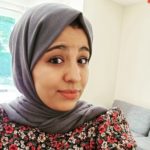Editorial team
Staff
Dr Loreto Aliaga Salas
Profile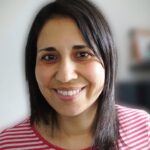
I have been involved in teaching English as a foreign language since 2004. I have worked as an English language teacher in secondary schools, adult colleges and language schools, and in higher education in both Chile and the UK. I have worked in language teacher education in both Chile and the UK since 2009. Before joining the School of Education, I taught in the General English programme at the School of Languages and Cultures, and I was a teacher assistant at the School of Education.
Research interests
I am mainly interested in language teacher education and language teacher research. My PhD explored teacher educators’ cognitions, in the context of curriculum change in a pre-service English language teaching programme in Chile, considering all the actors involved in this change project: teacher educators, as enactors; programme staff, as initiators; and student teachers, as receivers, and future enablers of change. My study demonstrates that complex curriculum change takes time and resources. In this case, despite being well intended, the speed of the change, the lack of forward planning, and existing models to refer to, have limited the programme achievements. Findings suggest that changes in teacher education require a close connection with the school contexts to gauge the feasibility of the innovation in reality, to inform teacher educators and student teachers to teach and learn in mainly unchanged educational contexts.
I have been conducting a longitudinal study of the microteaching dimension of a postgraduate TESOL programme, which intends to integrate theory and teaching practice applied in the student-teachers’ context. Based on student-teachers’ voices, my research discusses the role of microteachings in their future teaching careers, and offers suggestions for teacher education programmes to enhance the microteaching provision, reflection and meaning for student teachers.
I have extensively involved in teacher associations. I am the co-founder of RICELT, the Network of Chilean research in ELT, and I am IATEFL's Research SIG digital manager. With RICELT, I moderated a podcast series called Teachers4Teachers. I have been involved in mentoring teacher researchers in Africa since 2020, in association with Africa ELTA.
Student Education and Responsibilities
I teach in both undergraduate and postgraduate TESOL-related modules. I also supervise undergraduate, postgraduate taught and research students in the areas of TESOL and Education. I am the incoming Academic Personal tutoring Lead.
Dr Paula Clarke
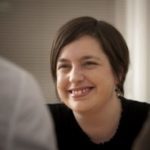 I studied BSc (Hons) Psychology at the University of York (1996-1999) before working as a Research Assistant for Kate Nation and Maggie Snowling (2000-2001) in the Centre for Reading and Language also in the Department of Psychology at York. I stayed there for a further eight years. Completing a PhD in 2005 (Patterns of Memory Asset and Deficit in individuals with Autism Spectrum Disorder) under the supervision of Kate Nation and Graham Hitch, working as a Lecturer (2004-2006) and as a Post Doctoral researcher on the ESRC funded York Reading for Meaning project (2006-2009). I moved from Psychology to Education in 2009 when I was appointed as a Lecturer in the School of Education at Leeds.
I studied BSc (Hons) Psychology at the University of York (1996-1999) before working as a Research Assistant for Kate Nation and Maggie Snowling (2000-2001) in the Centre for Reading and Language also in the Department of Psychology at York. I stayed there for a further eight years. Completing a PhD in 2005 (Patterns of Memory Asset and Deficit in individuals with Autism Spectrum Disorder) under the supervision of Kate Nation and Graham Hitch, working as a Lecturer (2004-2006) and as a Post Doctoral researcher on the ESRC funded York Reading for Meaning project (2006-2009). I moved from Psychology to Education in 2009 when I was appointed as a Lecturer in the School of Education at Leeds.
My work typically sits at the intersection between Psychology, Education and Linguistics; it is generally applied in focus and uses a mixture of methodological approaches. I enjoy working in a collaborative and interdisciplinary way and value the opportunities it presents.
Responsibilities
- MA Special Educational Needs Programme Leader
Research interests
My research uses psychological theory to inform the development of intervention approaches and assesment. I aim to help children engage with text and experience reading with meaning. My work promotes the development of rich mental representations and emphasizes exploration of ideas in multiple contexts and sharing perspectives. I am interested in how we assess and capture children’s understanding of text and how we can develop methodologies that are inclusive and accessible for all. My work is also concerned with research designs to evaluate the impact of educational interventions. I am experienced in using Randomised Controlled Trials (RCTs) and have a developing interest in Design-Based approaches for intervention development. I also have long standing research interests in the area of Autism and I have the privilege of supervising some fantastic doctoral research in this area.
Dr Matt Homer
My substantive areas of research interest include medical education assessment, and post-16 mathematics education.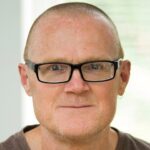
I currently spend the majority of my working time in the Leeds Institute of Medical Education within the School of Medicine carrying out assessment-related work and research. With a team of colleagues, we have an ongoing and internationally-recognised programme of research centred on improving performance and knowledge assessments. We have published widely in this area, for example, recent work is on conjunctive standards and on examiner variation in clinical skills assessments.
I also have assessment-related external positions with the General Medical Council – for example, quality assuring and doing research into the clinical assessment of international medical doctors coming to the UK.
In terms of my academic background, I have a PhD in Mathematics, an MSc in Applied Statistics, and taught mathematics and statistics in further and higher education for several years.
Dr Michael Inglis
 I joined the University of Leeds in 2012. I was previously a teacher educator at Liverpool John Moores University and a physics teacher in secondary schools in London and Hertfordshire. I worked in Ethiopia for 2 years (2006 & 2007) with VSO (Voluntary Service Overseas), where I supported teacher educators and school teachers as part of a national CPD programme. Before becoming a teacher I worked in the oil industry as a geophysicist with Texaco, where I designed and managed the acquisition and processing of seismic data.
I joined the University of Leeds in 2012. I was previously a teacher educator at Liverpool John Moores University and a physics teacher in secondary schools in London and Hertfordshire. I worked in Ethiopia for 2 years (2006 & 2007) with VSO (Voluntary Service Overseas), where I supported teacher educators and school teachers as part of a national CPD programme. Before becoming a teacher I worked in the oil industry as a geophysicist with Texaco, where I designed and managed the acquisition and processing of seismic data.
Responsibilities
- BA Education Programme Leader
Research interests
My research interests are in initial teacher education and language in science education. My doctoral research was on student teachers’ experiences and subject knowledge conceptualisations during a pre-service Physics Subject Knowledge Enhancement (SKE) course. I was a Co-Investigator on The Linguistic Challenges of the Transition from Primary to Secondary School, a 3-year project funded by ESRC and led by Prof. Alice Deignan. I was also recently a Co-Investigator on the ASCENTS 121 Support for Science project (1-2-1 Academically Asymmetrical Paired Tutoring in Science), an intervention funded by EEF and Wellcome, and led by Prof. Ian Abrahams at the University of Roehampton.
Student education
I have several years experience as a teacher educator on Science PGCE and BSc with QTS courses, and I recently led the Secondary PGCE programme here at the University of Leeds. I now lead the BA Education programme and I also teach on the PGCert in Education course for the Red Kite Alliance SCITT (School-Centred Initial Teacher Training). I currently supervise doctoral researchers and support a group of post-graduate researchers to produce the School of Education on-line journal, Hillary Place Papers.
Dr Mick Walker

The main focus of my research interest concerns the status of teacher’s assessments in high stakes accountability systems. The increased use of assessments as accountability measures in the compulsory phase of education in England has resulted in a level of mistrust in some quarters over the reliability of teacher-based assessments. This has also been linked to concerns about the lack of expertise in assessment theory and practice within the teaching profession. My aim is to gain a deeper understanding of issues around trust in teacher assessment and the development of a strategy to provide more public and professional confidence in teacher assessment outcomes used in high stakes assessment and in supporting teaching and learning.
Doctoral Researchers
Saila Kazmi
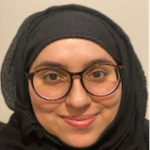
After twelve years of teaching secondary mathematics in some of the most deprived areas of England, my passion for serving the community has led me on a journey for solutions. All children deserve the best education, where they come from or their family’s socioeconomic status should not determine this. A passing grade in mathematics unlocks several opportunities for children who would otherwise be limited to a life of poverty and disadvantage. As such, I am interested in researching community and out-of-school interventions to improve outcomes in mathematics for disadvantaged children.
Nour Ben Nama (Lead Editor)
I am a PhD student in the final year of my studies. My research interests revolve around Special Education Needs (SEN) and Second Language Acquisition (SLA). My research study focuses on teaching English as a Foreign Language (EFL) to pupils with traits of Attention-Deficit-Hyperactivity-Disorder (ADHD) in Inclusive Education (IE). My aim is to explore: 1) the identification of ADHD in Algerian middle schools, 2) the needs and difficulties of pupils with traits of ADHD in EFL learning, and 3) teachers' experiences in teaching EFL to pupils with traits of ADHD and how they support them in the classroom.
I have BA degree in English Language, Literature, and Civilisation and MA degree in Didactics of Foreign Languages and Cultures. Before starting my PhD, I was enrolled in a preparatory program at Canterbury Christ Church University in the UK.
Ed Podesta
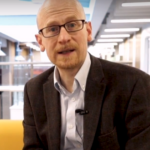 I am a post-transfer PGR student, combining my studies part-time with my work as an Associate Professor (Professional Practice) at Leeds Trinity University. After a Bachelors degree in Law, I completed a PGCE Secondary History at the University of Oxford, a Post Graduate Diploma in Innovation in Education (PGDIE) at the University of Warwick and a Master of Science in Education Research Methods at the University of Leeds. In my PGR studies I am investigating the curricular autonomy of teachers of English in secondary schools.
I am a post-transfer PGR student, combining my studies part-time with my work as an Associate Professor (Professional Practice) at Leeds Trinity University. After a Bachelors degree in Law, I completed a PGCE Secondary History at the University of Oxford, a Post Graduate Diploma in Innovation in Education (PGDIE) at the University of Warwick and a Master of Science in Education Research Methods at the University of Leeds. In my PGR studies I am investigating the curricular autonomy of teachers of English in secondary schools.
Marianne Talbot
 I am a post-transfer PGR, also working on various projects in universities and schools to evaluate outreach, widening participation, and social mobility, and with the Chartered Institute of Educational Assessors (CIEA), based at the University of Hertfordshire, where I design and lead professional development courses for assessors working in a wide variety of assessment contexts.
I am a post-transfer PGR, also working on various projects in universities and schools to evaluate outreach, widening participation, and social mobility, and with the Chartered Institute of Educational Assessors (CIEA), based at the University of Hertfordshire, where I design and lead professional development courses for assessors working in a wide variety of assessment contexts.
My research interests are in the professional development of teachers, post-qualification, as their experience and expertise deepen and broaden over time, specifically in relation to assessment and all the associated processes before, during and after assessment takes place. I am interested in teachers’ knowledge and understanding of assessment, their application of concepts such as validity, reliability, fairness, and comparability, and in the similarities and differences in their use of formative and summative assessment. More specifically, I want to understand the impact of Chartered Educational Assessors on their own and others’ assessment practice.
I am a Chartered Educational Assessor myself, a Fellow of the CIEA, a Fellow of the Higher Education Academy, and a primary school governor. I live in Warwickshire with my husband and our ginger cat, Arlo.

